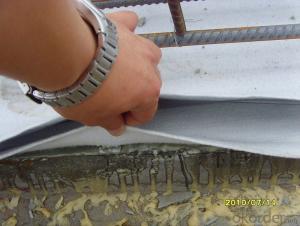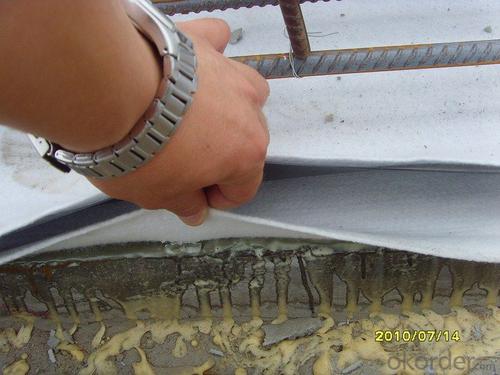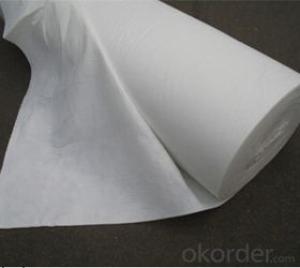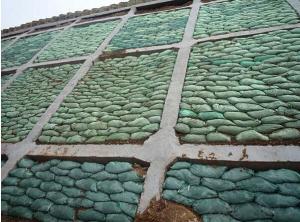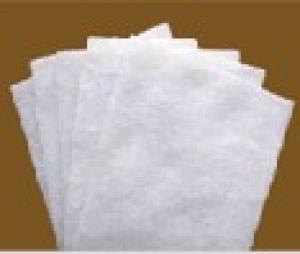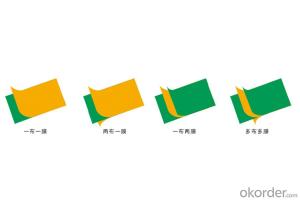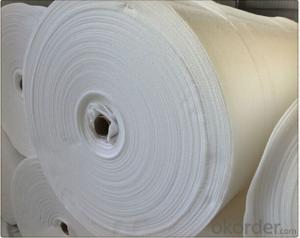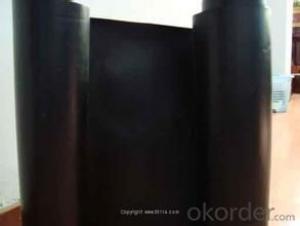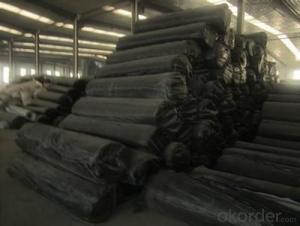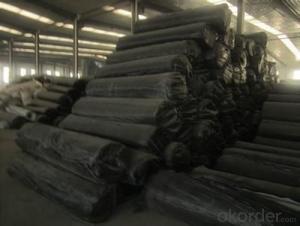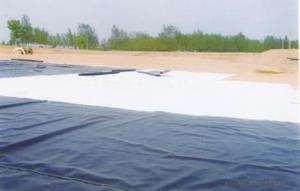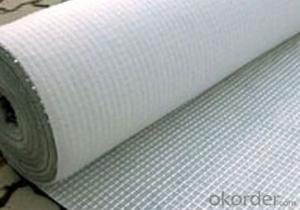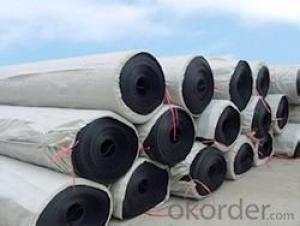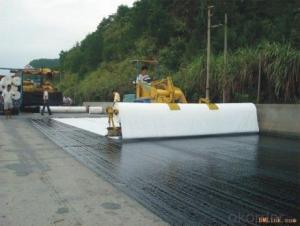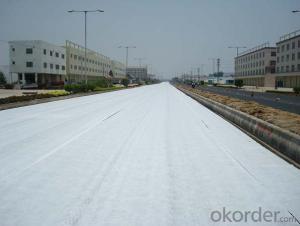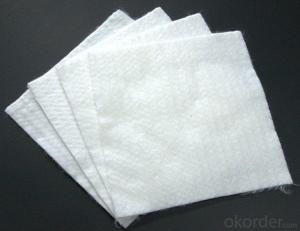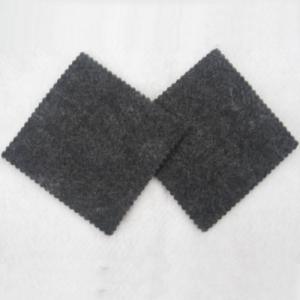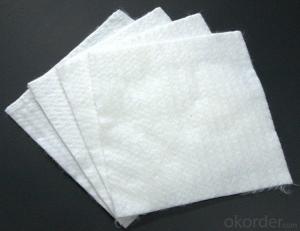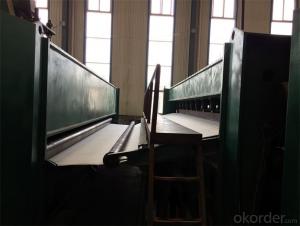Geotextil 200gr Anti-Grass Cloth with Good Quality
- Loading Port:
- China Main Port
- Payment Terms:
- TT or LC
- Min Order Qty:
- -
- Supply Capability:
- -
OKorder Service Pledge
OKorder Financial Service
You Might Also Like
1. Product Description:
The anti-grass cloth is a kind of vertical and horizontal weaving plastic woven cloth,
It has good quality of permeability,water seepage and Prevention and control of weeds.
Anti-grass cloth can not only prevent plant roots under the ground, beautify the
environment, improve labor efficiency and economic benefit, prevention and
control of environmental pollution, reduce pesticide use, also can prevent insects
and small animals and grow.
2. Product Characteristic:
1.Prevent leakage disposal in landfill or waste water or waste dregs disposing field.
2.River bank ,lake dam ,mine remainings ,resevoir ,tunnel ,liquid storage pool(pit ,mine)
3. Anti-salt leakage in roadbed and other ground sill.
4.The plane direction laying of dam ,the vertical direction laying for ground still used in the
construction fence and waste material field.
3.Specification :
1.material:pp
2.length :50-100m
3.width:1-8m
4. Type: Geotextiles
5. Geotextile Type: Woven Geotextiles
6. Color: black
4. Reference Picture:
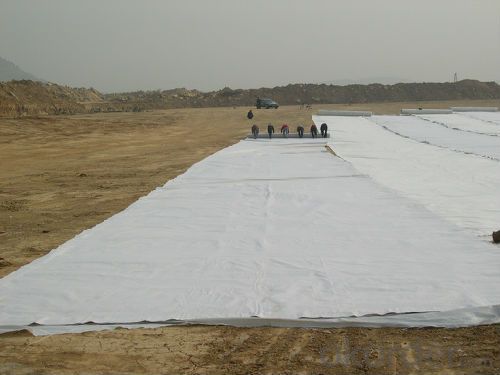
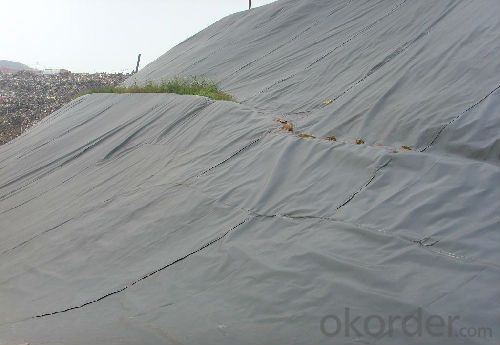
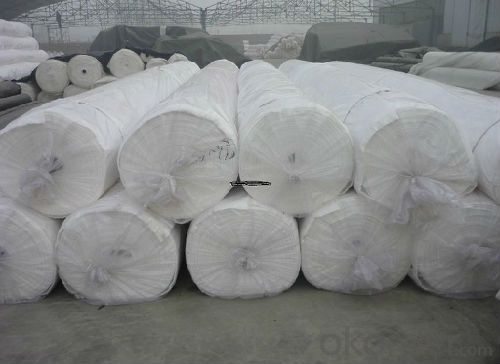
- Q: How do geotextiles help with soil confinement in erosion control bags?
- Geotextiles help with soil confinement in erosion control bags by providing a strong and permeable barrier that prevents soil particles from escaping. They act as a stabilizing agent, keeping the soil intact within the bags while still allowing water to flow through, reducing erosion and promoting vegetation growth.
- Q: What are the applications of geotextiles in coastal engineering?
- Geotextiles have several applications in coastal engineering, including shoreline protection, erosion control, and sediment filtration. They are used to stabilize and reinforce coastal structures such as revetments, breakwaters, and seawalls. Geotextiles also help in preventing soil erosion by acting as a barrier between the beach or dune and the water, reducing the impact of wave action. Additionally, they can be used to filter sediment and prevent the clogging of drainage systems in coastal areas. Overall, geotextiles play a crucial role in maintaining and safeguarding coastal environments.
- Q: Why do you want to set up geotextiles around the bottom and bottom of the ditch? What role? Which predecessors help me explain.
- Why do you want to set up geotextiles around the bottom and bottom of the ditch? What role? Which predecessors help me explain.
- Q: Geotextile price, the number of square feet per square
- You have different specifications and different prices. The number of square feet per ton to see how much you do grams, the greater the weight, the less the square number. Huazhi geotextile material manufacturers to answer.
- Q: Garage top back to the soil before the drainage board geotextile take what role
- The top surface of the drainage board glue a layer of geotextile filter to prevent the passage of soil particles, so as to avoid drainage channel obstruction of the drainage channel, said white is to do a filter layer, the water discharged to the designated location, the traditional process is Block ah, stone ah, what do the water layer, and now with the drainage board is not the reason for the stone is the drainage board is plastic, light weight, can reduce the load of the building. Manufacturers of drainage board geotextile waterproof board
- Q: What are the different geotextile permeability testing methods?
- Some different geotextile permeability testing methods include the constant head method, falling head method, and the flexible wall permeameter method. The constant head method involves applying a constant water head to the geotextile specimen and measuring the flow rate. The falling head method involves measuring the time it takes for the water level to fall a known distance in a permeameter connected to the geotextile specimen. The flexible wall permeameter method measures the flow rate through a specimen confined between two flexible walls. These testing methods help determine the permeability and hydraulic properties of geotextile materials.
- Q: Are geotextiles resistant to alkali degradation?
- Yes, geotextiles are generally resistant to alkali degradation.
- Q: How do geotextiles help with soil stabilization in foundation construction?
- Geotextiles help with soil stabilization in foundation construction by providing reinforcement and separation functions. They act as a barrier between different soil layers, preventing their intermixing and maintaining their structural integrity. Additionally, geotextiles improve the load-bearing capacity of the soil by distributing the applied loads more evenly, reducing settlement and increasing stability.
- Q: What is geotextile? Its use
- Geotextile, also known as geotextile, it is made of synthetic fiber through acupuncture or weaving through the permeability of geosynthetics materials, geotextile, geotextile, geotextile, geotextile, The Finished cloth for the cloth, the general width of 4-6 meters, the length of 50-100 meters. Geotextile is divided into a woven geotextile and non-woven geotextile. Geotextile has excellent filtration, drainage, isolation, reinforcement, anti-seepage, protection, with light weight, high tensile strength, good permeability, high temperature, anti-freeze, anti-aging, corrosion resistance.
- Q: How are geotextiles used in landfill construction?
- Geotextiles are used in landfill construction to provide reinforcement, separation, and filtration functions. They are placed between the layers of soil and waste materials to help prevent soil erosion, enhance the stability of the landfill, and prevent the mixing of different soil layers. Additionally, geotextiles act as a filter to allow the passage of water while preventing the migration of fine particles, thus reducing the risk of contamination.
Send your message to us
Geotextil 200gr Anti-Grass Cloth with Good Quality
- Loading Port:
- China Main Port
- Payment Terms:
- TT or LC
- Min Order Qty:
- -
- Supply Capability:
- -
OKorder Service Pledge
OKorder Financial Service
Similar products
Hot products
Hot Searches
Related keywords
